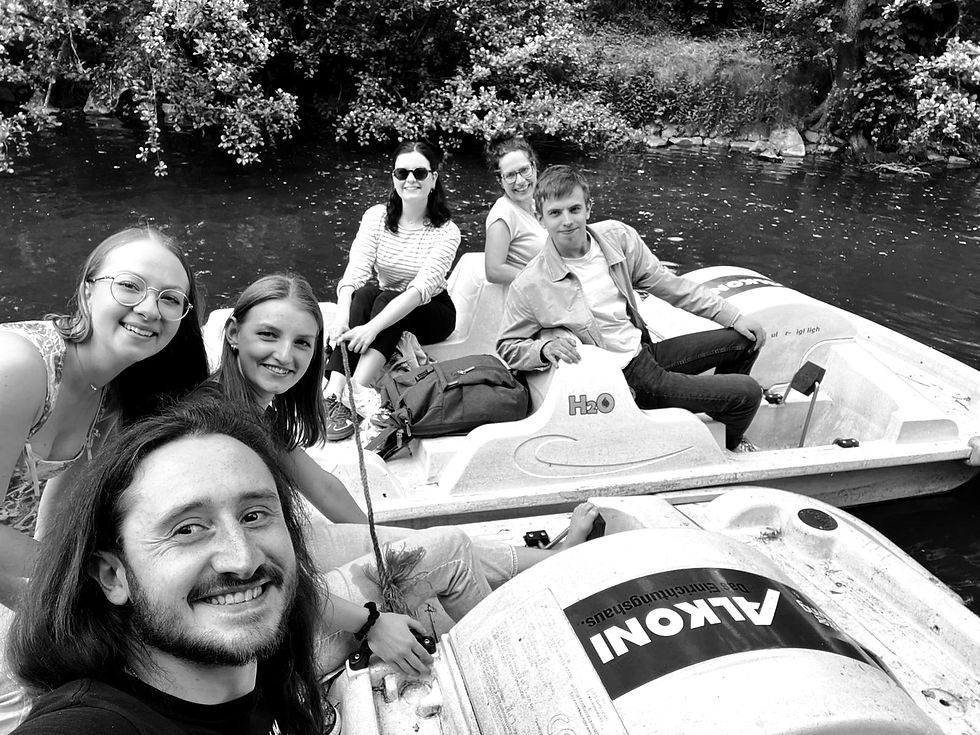Arbeitskreis Komplement System Treffen 2023 in Hamburg
- hannahnorawolf
- 5. Apr. 2023
- 2 Min. Lesezeit
Aktualisiert: 12. Juli 2023
Complement system research is an exciting and rapidly growing field that has the potential to revolutionize our understanding of human health and disease. Recently, a three-day conference was held in Hamburg that brought together research groups from Germany working on the complement system. The purpose of the meeting was to foster connections between these groups and provide a forum for sharing recent data. At our venue at the Hotel Hafen we had a fantastic view all over Hamburg and especially over the harbour.

The conference had a familial environment, with attendees enjoying the opportunity to catch up with colleagues and make new connections in the field. One of the highlights of the conference was the series of 5-minute impulse talks, which gave attendees a quick overview of some of the most exciting and cutting-edge research being conducted in the field of complement system research. Two members of our laboratory, Pratiti and me, had the opportunity to give such a talk and share our work with the conference attendees.
Pratiti presented her research on the identification of binding partners to complement factor H related protein 3 using the phage display methodology. Complement factor H related protein 3 is a protein involved in the regulation of the complement system, and understanding its binding partners is crucial for understanding its function in the body.
I presented my research on the role of complement anaphylatoxins C3a and C5a in endothelial barrier dysfunction in Neuromyelitis optica. Neuromyelitis optica is an autoimmune disorder that affects the central nervous system, and understanding its pathogenesis is a key area of research. My work focused on how complement anaphylatoxins C3a and C5a interact with endothelial cells to promote barrier dysfunction, which is a hallmark of Neuromyelitis optica.
The conference provided a great opportunity for researchers in the complement system field to share their work, exchange ideas, and foster connections between research groups in Germany. The impulse talks were a great way for attendees to get a quick overview of some of the most exciting research being conducted in the field, and were a great opportunity to practice our presenting skills in front of an audience. We look forward to seeing how everyone’s develops over the next years.
Hannah



Kommentare